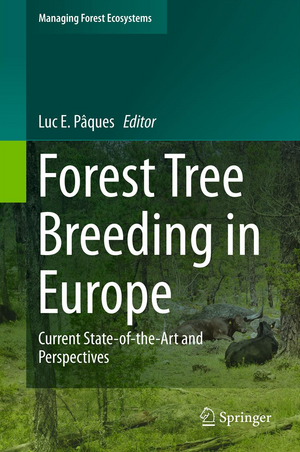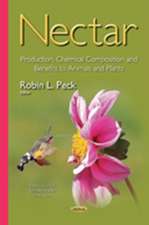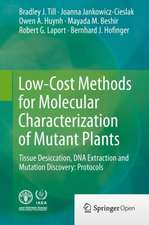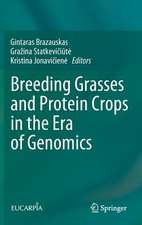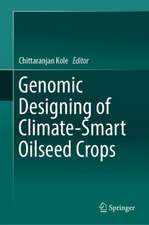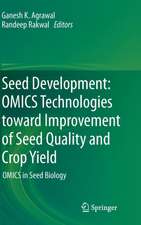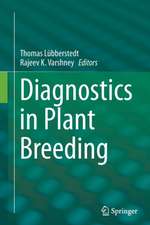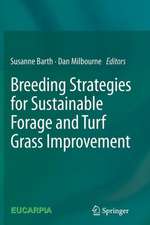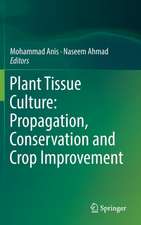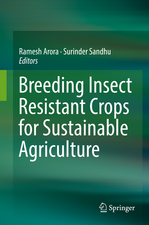Forest Tree Breeding in Europe: Current State-of-the-Art and Perspectives: Managing Forest Ecosystems, cartea 25
Editat de Luc E. Pâquesen Limba Engleză Hardback – 12 iun 2013
| Toate formatele și edițiile | Preț | Express |
|---|---|---|
| Paperback (1) | 1228.15 lei 6-8 săpt. | |
| SPRINGER NETHERLANDS – 16 iul 2015 | 1228.15 lei 6-8 săpt. | |
| Hardback (1) | 1244.71 lei 6-8 săpt. | |
| SPRINGER NETHERLANDS – 12 iun 2013 | 1244.71 lei 6-8 săpt. |
Din seria Managing Forest Ecosystems
- 18%
 Preț: 945.79 lei
Preț: 945.79 lei - 18%
 Preț: 1394.03 lei
Preț: 1394.03 lei -
 Preț: 367.69 lei
Preț: 367.69 lei - 18%
 Preț: 1113.71 lei
Preț: 1113.71 lei - 15%
 Preț: 642.21 lei
Preț: 642.21 lei -
 Preț: 431.74 lei
Preț: 431.74 lei - 24%
 Preț: 1042.44 lei
Preț: 1042.44 lei - 15%
 Preț: 711.21 lei
Preț: 711.21 lei - 24%
 Preț: 787.54 lei
Preț: 787.54 lei - 15%
 Preț: 646.62 lei
Preț: 646.62 lei - 15%
 Preț: 645.60 lei
Preț: 645.60 lei - 18%
 Preț: 1242.03 lei
Preț: 1242.03 lei - 15%
 Preț: 648.24 lei
Preț: 648.24 lei - 15%
 Preț: 693.90 lei
Preț: 693.90 lei - 24%
 Preț: 799.28 lei
Preț: 799.28 lei - 18%
 Preț: 1229.10 lei
Preț: 1229.10 lei - 18%
 Preț: 943.43 lei
Preț: 943.43 lei - 18%
 Preț: 948.92 lei
Preț: 948.92 lei - 24%
 Preț: 778.95 lei
Preț: 778.95 lei - 18%
 Preț: 945.62 lei
Preț: 945.62 lei - 18%
 Preț: 943.88 lei
Preț: 943.88 lei - 18%
 Preț: 1544.00 lei
Preț: 1544.00 lei - 18%
 Preț: 946.55 lei
Preț: 946.55 lei - 18%
 Preț: 949.73 lei
Preț: 949.73 lei - 18%
 Preț: 967.08 lei
Preț: 967.08 lei - 24%
 Preț: 849.91 lei
Preț: 849.91 lei - 24%
 Preț: 903.02 lei
Preț: 903.02 lei - 18%
 Preț: 952.26 lei
Preț: 952.26 lei - 20%
 Preț: 592.63 lei
Preț: 592.63 lei
Preț: 1244.71 lei
Preț vechi: 1517.94 lei
-18% Nou
Puncte Express: 1867
Preț estimativ în valută:
238.21€ • 247.77$ • 196.65£
238.21€ • 247.77$ • 196.65£
Carte tipărită la comandă
Livrare economică 12-26 aprilie
Preluare comenzi: 021 569.72.76
Specificații
ISBN-13: 9789400761452
ISBN-10: 9400761457
Pagini: 500
Ilustrații: VI, 527 p.
Dimensiuni: 155 x 235 x 27 mm
Greutate: 1.22 kg
Ediția:2013
Editura: SPRINGER NETHERLANDS
Colecția Springer
Seria Managing Forest Ecosystems
Locul publicării:Dordrecht, Netherlands
ISBN-10: 9400761457
Pagini: 500
Ilustrații: VI, 527 p.
Dimensiuni: 155 x 235 x 27 mm
Greutate: 1.22 kg
Ediția:2013
Editura: SPRINGER NETHERLANDS
Colecția Springer
Seria Managing Forest Ecosystems
Locul publicării:Dordrecht, Netherlands
Public țintă
ResearchCuprins
1. Introduction.- Part I: Breeding of Confires.- 2. Larches.- 3. Norway Spruce.- 4. Sitka Spruce.- 5. Mediterranean Pines.- 6. Scots Pine.- 7. Douglas Fir (Pseudotsuga menziesii (Mirb.) Franco).- Part II: Breeding of Broadleaves.- 8. Sycamore Maple (Acer pseudoplatanus L.).- 9. Common Ash (Fraxinus excelsior L.).- 10. Wild Cherry (Prunus avium (L.) L.).- List of authors and contributors.- Subject index.
Textul de pe ultima copertă
Forest tree breeding has been ongoing for more than 70 years across Europe. It has successfully generated improved varieties for the major economical forest tree species. They are part of the present European forestry landscape and largely contribute to intensive wood production and other forest activities. In this book, we describe the state-of-art of breeding for the main forest tree species. We provide a comprehensive, unique and up-to-date overview of the major scientific results and breeding achievements gathered from the many programmes scattered across Europe. The book is divided into 10 chapters, each as a monograph corresponding to a species or group of species Abies spp., (Larix spp., Picea abies, Picea sitchensis, Pinus sylvestris, Pseudotsuga menziesii, and Mediterranean pines; Acer pseudoplatanus, Fraxinus excelsior, and Prunus avium). Each of them is written by a group of experts and focuses on the distribution and economical importance of the species; motivation for breeding and breeding objectives; intraspecific genetic variability, breeding populations and breeding strategy; forest reproductive material deployment including mass-propagation and, prospects and perspectives for joint research and breeding. The book is a unique and up-dated source of information for students, researchers and professionals interested in the genetics and domestication of forest tree species.
Caracteristici
Provides up-to-date information on national and collaborative programmes for genetic improvement of ten most important forest tree species across Europe Illustrates the diversity of breeding strategies used for forest trees and proposes perspectives for future collaborative breeding Compiles and assesses the most important scientific results and breeding achievements for species of major economic importance
